Egypt & Jordan Uncovered Trip Notes
General
PrintPrepare to witness some of the greatest monuments and cultures of the ancient world. Pose with the Pyramids, kiss the Sphinx and sail your felucca down the Nile like an Egyptian. Sunbathe by the Read Sea and prepare for the breath-taking Wadi Rum. The amazing Petra awaits you before you float in the Dead Sea.
Duration : 16 Days
Destination : Egypt / Jordan
Start/Ends in : Cairo / Amman
Group Size :13-35 People
Age Req. : 18+
Trip Theme : In-Depth Explorer, Sailing
Hotels : 5 & 4 & 3 Star
Departs : All Year Around
Why you will love this tour
- * This 16-day adventure through Egypt and Jordan is the perfect mix of sailing, seaside relaxing, ancient history, desert exploring and city living.
- * Experience a two-night stay on a traditional Felucca boat, sailing down the Nile River and experiencing the local way of life – Access to WC facilities available throughout.
- * Get your swimsuits ready for two nights in Dahab! This place is world-renown for incredible coral reefs and lovely beaches.
- * Start your journey in Egypt’s capital of Cairo and end the adventure in Jordan’s capital of Amman, accompanied by local guides who’ll show you around the best sites, chaotic bazaars, and the hidden gems of these busy cities.
- * Camp out under the stars in Wadi Rum at a Jordanian Desert Camp! Then get the engines revving for an included 4×4 safari through Mars-like desert landscapes.
- * Tick off bucket-list Wonders of the World with your local and highly-knowledgeable guides, including the Great Pyramids and Sphinx of Egypt, the Lost City of Petra in Jordan, and the Lighthouse of Alexandria in Egypt.
- * Tailor your holiday with optional activities including camel trekking in the desert, exploring Petra by candlelight, snorkeling the Blue Hole, hot-air ballooning over Luxor, or a day trip to Abu Simbel.
Arrival Details
The group welcome meeting with your guide and other travellers are held around 18:30 at the hotel lobby on Day 1 of your tour unless otherwise notified.
Meeting Point:
The meeting point is:
Sonesta Hotel Tower & Casino – CAIRO
3 El Tayaran St, Ash Sharekat, Nasr City, Cairo Governorate 4451043, Egypt
Phone : +20 2 22641111
Emergency Number: +44 203 14 99 200
Airport Transfers :
All tours starting in Cairo include arrival airport transfer if your flight lands in Cairo on the first day of your tour between 5am and 11:30pm or if you have booked pre-accommodation with us.
To arrange your airport transfer please email us the following information at least 2 weeks before your departure date. [email protected]
Travel Date, Flight Number, Local Arrival Time, Name/s of the Passengers
Making Your Own Way to the Starting Point
The arrival hotel is located in the pyramids area, 32 km away from the Cairo Airport (CAI). It takes about 40 minutes – 1 hour by taxi depending on the traffic. You can take a taxi from the airport directly to the hotel, which is expected to cost around 350-400 EGP. You can also use Uber as long as you have data access (Please note that taxi numbers are in Arabic so you may have difficulty in finding the vehicle). Another option is to arrange a private transfer via cairoshuttlebus.com, you can visit their desk at the airport, or prebook and pay at the airport. It may be 50-70 EGP more expensive than the other options. We recommend to avoid white cabs as these can be more costly
Finishing Point
The finishing point is:
SULAF LUXURY HOTEL – AMMAN – 4 Star
Address : Al-Madina Al-Monawara St, AmmanEmergency
Phone : +962 6 554 4515
Emergency Number: +44 203 14 99 200
Highlights
Aswan: Sunniest city of Egypt and a popular touristic stop for many cruises. The local market here is an excellent place to do some shopping and to find Egyptian fresh spices.
Cairo: With the Great Pyradmids of Giza, ancient temples, magnificent monuments and the Egyptian Antiquities Museum, Cairo offers and experience of a lifetime.
Edfu: Edfu has the most complete and best-preserved temple in Egypt, the Ptolemaic Temple of Horus, which was constructed between 237 BC and 57 BC.
Giza: The Great Pyramid of Giza is one of the seven wonders of the ancient world and the only one still remaining to this day. An absolute must see.
Komombo: Kom Ombo means “hill of the gold” crowned with Temple of Komombo. The temple is unusual as one side is dedicated to the god Haroesis and the other side to Sobek.
Luxor: A top travel destianation in Egypt with a wealth fo historic monuments and buildings bringing Egypt’s fabled past to life. Luxor is called the world’s greatest open air museum.
Philae Temple: Phliale Temple, a beautiful temple complex is one of the most picturesque in all of Egypt. It sits on Aglika Island just south of the old Aswan Dam.
Dead Sea: The Dead Sea is a 30-minute drive from Amman and you reach this unique spot in Jordan. The Dead Sea brings a sense of unreality to any traveler passing through.
Petra: Petra, A UNESCO World Heritage Site, is described as “one of the most precious cultural properties of mankind’s cultural heritage”. Simply amazing.
Wadi Rum: Absolutely stunning is its natural beauty, Wadi Rum summarizes the romance of the desert. You may meet some friendly Bedouins living close by in the desert.
Alexandria: A Mediterranean port city in Egypt. During the Hellenistic period, it was home to a lighthouse ranking among the Seven Wonders of the Ancient World as well as a storied library.
Itinerary
Inclusions & Exclusions
The tour price covers the following services:
Accomodation : 5 and 4 star hotels in Egypt, 3 Star hotels and desert camp in Jordan
Airport Transfer : Arrival transfer on the first day of the trip
Meals : 15 breakfasts | 2 lunches | 3 dinners
Transportation : Air-conditioned modern coach or mini-bus, traditional felucca boat
Guide : Services of experienced Travel Talk local guides licenced by the Ministry of Tourism
Sightseeing : Giza Pyramids, Sphinx, Sakkara Pyramid, Philae Temple, Unfinished Obeliks of Aswan, Edfu Temple, Komombo Temple, Luxor Temple, Karnak Temple, Egyptian Museum, Hatshepsut Temple & Colossi of Memnon, Citadel of Saladin, Mohammed Ali Mosque, Hanging Church, Bazaar Khan El- Khalili, St. Catherine Monastery, Petra, Amman, Ajloun, Jerash, Wadi Rum, Alexandria
What is NOT included in the tour price?
- Any flights not mentioned above
- Travel insurance
- Meals not stated above
- Items of a personal nature
- Tips & gestures
- Entrance fees to the sights and museums
- Optional activities
- Other services not stated in the itinerary
Hotels & Accomodation
Solo travellers will be roomed with another solo traveller of the same gender in a twin or triple room or can upgrade to a solo room by paying the single supplement. You may choose the solo room option when booking online or contact us to arrange a private room. Your tour leader will allocate rooms upon arrival at the starting hotel in accordance with the rooming lists, last-minute changes may not be guaranteed.
SONESTA HOTEL TOWER & CASINO – CAIRO – 5 Star
The luxury design hotel features a SPA & fitness center, an outdoor pool with poolside bar and a selection of restaurants offering delicacies from various cuisines.
STEIGENBER HOTEL – LUXOR – 5 Star
This 5-star hotel, located in the heart of Luxor by the Nile River, provides an outdoor pool, fitness center, and sauna. All rooms feature air-conditioning and satellite TV.
TOLIP HOTEL – ASWAN – 5 Star
This 5-star hotel overlooking the river, offers a pool, nightclub, and spa center. Air-conditioned rooms are equipped with a minibar and a satellite TV, also free wi-fi access.
SLEEPER CABIN TRAINS- CAIRO TO ASWAN & LUXOR TO CAIRO
Privacy, a comfortable bed in which to sleep, a fine dinner, and excellent service are the hallmarks of Egypt’s sleeper trains. The twin-share cabins are equipped with bunk beds.
CAPTAIN’S DESERT CAMP – WADI RUM – Superior Campsite
Experience an unique experience in Wadi Rum, while staying at Captain’s Desert Camp. This campsite features tents with attached bathrooms for a comfortable stay.
PETRA MOON HOTEL – PETRA – 4 Star
Just 150 meters from the entrance gate to Petra and only 100 meters from Petra Museum. This hotel features spacious rooms with flat-screen TVs. It also has a roof garden with a seasonal outdoor pool.
SULAF LUXURY HOTEL – AMMAN – 4 Star
This hotel is located in the heart of Amman. The Salaf Luxury Hotel has been specially designed to provide every level of comfort and service in keeping with today’s demands.
SEVEN ROSES HOTEL – AMMAN – 4 Star
The contemporary design hotel features an on-site restaurant & lounge and air-conditioned rooms with flat screen TV, kettle, bath robe and slippers.
Distances
Please find below the distances between the sights visited in Egypt and the approximate driving times. We will always strive to take a short break every few hours to enable passengers to stretch their legs, purchase snacks and use wash facilities during long drives.
Aswan – Luxor: 247 kms – 3 hrs
Cairo – Aswan : 982 kms – 12 hrs
Aswan – Abu Simbel: 309 kms – 3.5 hrs
Luxor – Cairo: 735 kms – 9 hrs
Cairo – Dahab : 550 kms – 6.5 hrs
Wadi Rum – Petra: 115 Km – 1h 45 min
Petra – Dead Sea: 200 Km – 3h 30 min
Dead Sea – Amman: 60 Km – 1h
Amman – Ajlun: 70 Km – 1h 20 min
Jerash – Amman: 51 Km – 1h
Felucca Boat
Feluccas are traditional sailing boats that have been used on the Nile for centuries. Though somewhat modernized, they are very simple sailing boats and have no engines or facilities. There is a single deck on which you can stretch out during the day under a shade awning. Each felucca sleeps 6-8 people and is
crewed by a captain and a deck hand – both of whom have grown up along the banks of the Nile. As well as being experienced Nile sailors they also make the most delicious meals out of simple local ingredients. You may sit down to a lunch of local bread, white cheese, hummus and delicious fresh juicy tomatoes or a dinner
of pasta and mixed vegetables with delicious tomato sauce. If spending the night, you will sleep on the deck, which is covered with mattresses, cushions and blankets. A light sleeping bag is recommended if you are travelling in the winter. We also use a special felucca that tags along the way to provide you with WC and shower facilities throughout your sailing adventure.
Budgeting
Please note that entrance fees to sights and optional activities are not included in the tour price. Optional activities are not operated by Travel Talk and may require a certain number of attendees to run. Your guide will be happy to inform you further about the available optional activities at the start of your tour. Optional activities are also listed under each day in your tour itinerary.
Entrance Fees
Egypt
Giza Pyramids/Sphinx — EGP 700
Sakkara Pyramid — EGP 600
Egyptian Museum — EGP 550
Citadel of Saladin — EGP 550
Philae Temple — EGP 550
Edfu Temple — EGP 550
Komombo Temple — EGP 450
Luxor Temple — EGP 500
Hatshepsut Temple — EGP 440
Valley Of The Kings — EGP 750
Karnak Temple – 600 EGP
Jordan
Jerash — 10 USD
Wadi Rum — 7 USD
Petra Ancient City — 70 USD
Dead Sea — 10 USD
Shobak Castle — 1,5 USD
Ajloun — 10 USD
Optional Activities
Please note that Optional Activities are not operated by Travel Talk.
Hot-Air Ballooning — 124 USD
Abu Simbel — 120 USD
Nubian Dinner — 32 USD
Group Dinner — 35 USD
Mountain Dinner — 34 USD
Snorkeling at Blue Hole — 42 USD
Quad Biking — 29 USD
Lunch at the Dead Sea — 12 USD
Group Dinner Jordan — 22 USD
Camel Ride in Wadi Rum — 17 USD
Petra By Night Tour — 25 USD
Personal Spending
The currency of Egypt is the Egyptian Pound (EGP). Most major cities and towns in Egypt have ATMs and credit or debits cards are widely accepted in the tourist areas. If you plan to travel off the beaten track, be prepared to have cash for souqs, small meals, and entrance fees.
The currency of Jordan is the Jordan Dinar (JOD). ATMs are widely available in major towns and cities across Jordan. Credit and debit cards are generally accepted, but cash remains king in the souqs and regions such as Wadi Rum.
While every traveler’s spending habits may differ slightly, we have estimated the average daily expenses to help with budgeting for your next trip. Here you will find the average cost for a meal or drink.
Meals (Egypt)
Lunch at the restaurant: US$ 4-8
Dinner at the restaurant: US$ 10-15
Shawarma (lamb pitta) at a stall: US$ 1-2
Zalabya – Egyptian Donut ball: US$ 0.30
Meals (Jordan)
Lunch at restaurant US$ 3-7
Dinner at restaurant US$ 10-13
Falafel sandwich at a stall US$ 2
Kanafeh Sweet US$ 1
Drinks (Egypt)
Bottle of water: US$ 0.5
Coffee: US$ 1.5-2
Tea: US$ 1-2
Bottle of beer: US$ 3-4
Drinks (Egypt)
Bottle of water: US$ 0.6
Coffee: US$ 1-2
Tea: US$ 0.5-1.5
Bottle of beer: US$ 4-5
Tipping
Known as ‘Baksheesh’, tipping is a natural part of daily life and is considered part of the traditional payment structure for services in Egypt. We recommend budgeting around 5-10 USD a day for tipping with an estimation of a ~10% tip at restaurants, taxis, and the rest. Your Guide and Driver would also appreciate this kind of gratitude at the end of your tour or their service.
Egypt Shopping
Souqs, or local markets, along with larger bazaars are not only the perfect place to shop for souvenirs but also among the most remarkable attractions of Egypt. The biggest and most famous soup is the 500-year-old Khan El Khalili Bazaar in Cairo. Quality can vary quite significantly depending on how much you spend and where you shop, so feel free to always ask your expert guide for their advice while on tour. Haggling and bargaining over prices in bazaars and souqs is a fundamental part of shopping in Egypt. The key is to start low and work your way up but always have a maximum value in mind.
Cartouche Jewellery
Cartouche, commonly known as hieroglyphics, is an ornate Egyptian scroll featuring engravings and inscriptions. It is common to find gold and silver jewelers all over Egypt selling personalised Cartouche pendants. Silver jewelry featuring a cartouche pendant is a common souvenir across Egypt but to buy quality, we recommend purchasing silver that is stamped with ‘925’ quality. Prices for quality Cartouche jewellery can range between 10 USD – 1,000 USD depending on the metals.
Muski Glassware
Since medieval times, Muski glass has been hand-blown to create incredible plates, vases, candle holders, glasses, and more to fashion through the homes of local Egyptians. This bubble-shot glassware comes in vibrant shades of blue, green, and purple, and is known to be extremely fragile so pack with caution!
Perfume
Egypt is a major trading centre for the perfume industry, and you can’t escape the country without visiting an essential-oil dealer to try a few for yourself! Got a favourite perfume that you would like to purchase on the cheap? Local shops across Egypt will duplicate famous perfumes at a reasonable price. Lotus (sawsan) and Jasmine (full) are the most distinctively Egyptian scents, and you can expect to pay approximately 15-25 USD for a duplicate perfume.
Jordan Shopping
Traditionally, the people of Jordan have always crafted the goods they needed – meaning over time they have developed a strong craftmanship for certain goods. We recommend keeping an eye out at local souqs and markets across the country for a glimpse into the local arts. Unlike neighboring countries such as Egypt, haggling in Jordan is far less fierce or common.
Traditional Keffiyehs
The most iconic textile in Jordan would have to be the headscarf, called keffiyeh. The traditional design is a houndstooth, red and white pattern, frequently worn by the Bedouins. They are incredibly practical for exploring the desert and their compactness makes for the perfect gift to take home! Expect to pay between 5-10 USD.
Gold Jewellery
The Bedouins place a high value on jewelry with past ancestors traditionally investing their money in jewelry rather than banks. The Gold Souk in Downtown Amman offers distinct jewellery of Jordanian design from striking necklaces to semiprecious stones.
Hand-painted Ceramics
Mosaics are a distinctly Jordanian art form and while purchasing mosaic goods while traveling can be both expensive and weighty, mosaic-style ceramics is a great alternative. Throughout the souqs and along the streets of Amman you’ll find local artists customizing mosaic designs on all kinds of traditional pottery including mugs, plates, and vases. Prices for customise products start at approximately 15 USD.
Essential Information: Egypt & Jordan
Bear in mind the essential information regarding traveling to Egypt & Jordan before your trip. For more, check out our Egypt travel advice and Jordan travel advice pages.
Passport & Visas (Egypt)
Visas to enter Egypt are compulsory for all tourists. It is possible to obtain a tourist visa when you get to Cairo International Airport for most nationalities. However, we recommend applying for a Visa online two weeks prior to arrival in Egypt.
Please note passport holders from UK, USA, Australia, New Zealand, and the EU may purchase their visa stamp upon arrival, while South Africans must arrange their visa prior to arrival.
If you wish to get a visa on arrival, you can do so at approved bank kiosks within airport arrival halls, before reaching immigration counters. The visa fee is US$25, payable in in GBP, USD or EUR. Visas granted on arrival are valid for a maximum of 30 days.
Passport validity entry requirements: Travellers entering Egypt must also carry a passport or travel document valid for at least 6 months from your arrival date.
This information is provided as a guidance, we strongly advise that you check with the consulate or embassy as this information can change. Please note, visa costs can change at any time and with little notice depending on the political climate of the region. It is your responsibility to make sure that all the required travel documents are ready when travelling.
Passport & Visas (Jordan)
All visitors to Jordan are required to have a visa, which can be arranged through Jordanian consulates worldwide or upon arrival in Jordan. Visitors from the UK, USA, Australia, New Zealand, Canada, the EU and South Africa may acquire their visa upon arrival in Jordan. Single-entry tourist visa fee is 40 JOD and it can only be paid in JOD (Jordanian Dinar).
You can visit the Jordan Tourism Board website to check if you are able to obtain a visa upon arrival, http://international.visitjordan.com. Please ensure that you check with the Jordanian Embassy or Consulate of your country for up-to-date visa information. You may also purchase the Jordan Pass which waives the visa fees for tourists while covering the entrance fees to many touristic sites.
Passport validity entry requirements: Travellers entering Jordan must also carry a passport or travel document valid for at least 6 months.
Jordan Pass
Jordan Pass is considered to be the best option for tourists visiting Jordan. It covers the entrances fees to more than 40 touristic sites, including Petra, and waives the visa fees for tourists. Jordan Pass must be purchased 3 days prior to your arrival date. We strongly recommend that you get the Jordan Explorer package instead of the Jordan Wanderer, so that you may enter Petra more than once. You can check all the details from the link below and buy the Jordan Pass online. It costs about JD75 (USD106).
This information is provided as a guidance, we strongly advise that you check with the consulate or embassy as this information can change at any time and with little notice. It is your responsibility to make sure that all the required travel documents are ready when travelling.
Travel Advice
We are closely monitoring the latest travel updates to Egypt & Jordan and follow the advice of the UK Foreign Office. For the latest travel advice from UK Foreign, Commonwealth & Development Office (FCDO), please visit: https://www.gov.uk/foreign-travel-advice/egypt and https://www.gov.uk/foreign-travel-advice/jordan
We recommend all travellers to check their Government National Travel Advisory prior to their departure:
Australia – https://www.smartraveller.gov.au/
Canada – https://travel.gc.ca/
New Zealand – https://www.safetravel.govt.nz/
USA – https://travel.state.gov/
Travel Insurance
All passengers travelling with Travel Talk are required to have personal travel insurance before participating in any of our tours. Your guide will collect your travel insurance details on the first day of your trip. It is your responsibility to make sure you have an adequate and suitable travel insurance for you in place, you may read more at https://www.traveltalktours.com/travel-insurance
Health & Safety
The health and safety of our passengers, staff and communities visited is of utmost priority. As we monitor and comply with the official advice from the UK Foreign Office, as well as World Health Organization and government authorities regularly, we have implemented several policies and precautions on our tours for your wellbeing. You may find our Safe Travels Protocols at https://www.traveltalktours.com/safe-travels
Travel Talk Adventures has received the Safe Travels stamp by the World Travel and Tourism Council (WTTC), which allows travellers to recognise companies around the world that have adopted health and hygiene global standardised protocols – so consumers canexperience ‘Safe Travels’.
Please make sure to regularly check your Government’s travel advice before travelling and be well-informed of any requirements. Your tour guide will also notify you of the regulations and protocols to follow throughout your trip with us.
Please note that if any traveller is unable to complete the itinerary or possess a potential risk to themselves and/or the rest of the group, we reserve the right to remove them from all or part of a trip.
Please consult with your doctor for the latest medical travel information and any vaccinations you may need. We recommend that you bring any personal medical requirements and medications with you as these may be difficult to obtain while on tour.
Weather
Egypt is a year-round destination with sunny days, warm climate and very little rain. The summer months, from June to August, can be particularly hot, especially towards the south of the country in Luxor and Aswan where temperatures can hit 40 degrees Celsius. If you are visiting Egypt during this time, take plenty of sunscreen and hydrate regularly throughout the day. The best time to visit Egypt, and also traditionally the busiest season, is from October to late March. During these months, the days are usually bright and sunny. If you are travelling during these winter months and plan to trek in the Sinai or cruise on the Nile river, you should expect temperatures to fall considerably overnight, especially near Mt. Sinai – Come prepared with some extra layers to rug up overnight. Spring and Autumn are only short seasons and during the 50 days (Khamaseen) between the end of March and mid-May, dust storms can occur sporadically. Check out our weather guide for the best time to visit Egypt.
The best time to visit Jordan is typically during Spring and Autumn, when temperatures sit in the high twenties with warm, pleasant days perfect for exploring. During the Spring, travellers can also expect to see Jordan’s beautiful flora in bloom as mountains and fields are coated with rich greenery and wildflowers. With 90% of Jordan covered by desert, the summer months can be very hot with July and August seeing its hottest temperatures in the forties. While these temperatures can be challenging for those not accustomed to the heat, it is still worth considering a trip at this time if you are not adversely affected by heat, as you will have the chance to see the nation’s best sites, such as Petra, without the crowds! It is worth remembering that the nights can be cold, though – the sands of Wadi Rum dropping to 4°C in winter. Check out our weather guide for the best time to visit Egypt.
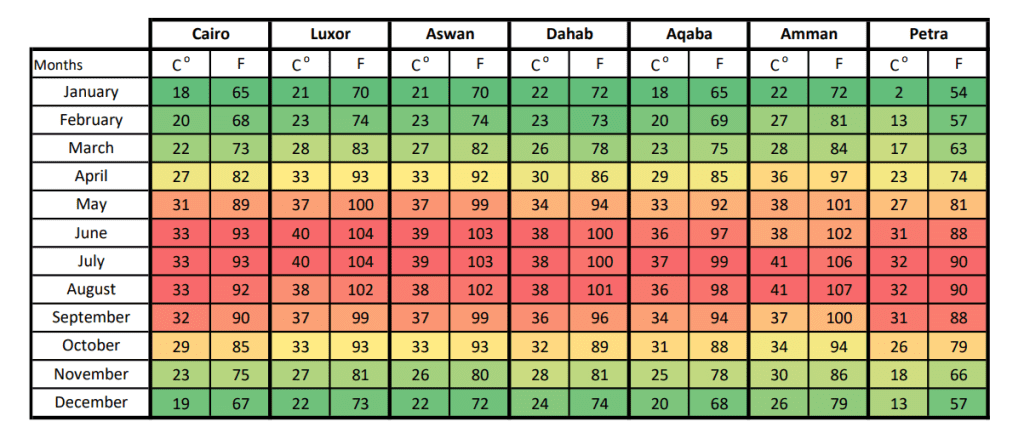
Money Matters
The local currency of Egypt is the Egyptian Pound (EGP) and the local currency of Jordan is the Jordanian Dinar (JOD).
Major credit and debit cards are widely accepted in major cities and tourist sites across Egypt and Jordan. However, if you’re travelling off the beaten track, come prepared with a small stash of cash on hand inexpensive purchases at local markets, souqs, entrance fees or small meals. ATMs can be easily found in many places across the cities, however, are not as common in rural areas. We recommend you do not exchange bulk sums of money at the airport, as the exchange rates are usually more favourable in the major cities. Your tour leader will be happy to help if you need any assistance.
Please remember that everyone has different spending habits, some prefer to spend more on souvenirs, some on experiences and others on a night out! Make sure to budget your trip to your spending habits for shopping, drinking, and tipping.
Tipping is known as ‘baksheesh’ in the Middle East and while it is not mandatory, is common reward for good service paid by both tourists and locals alike. It is reasonable to tip around 10% if a service charge is not already applied to a bill. While on tour, a budget of 5-10 USD per day will usually cover tips. Your Tour Guide and Driver would also appreciate this kind of gratitude at the end of your tour or their service.
It is common for group members to contribute to a “Tipping Kitty” to minimise worries regarding tipping, such that the guide may collect tips at the start of the tour for the whole group in order to avoid the hassle while adventuring throughout Egypt. “Tipping Kitty” is voluntary and does not cover tips for the tour leader or driver. We recommend to budget 5-10 USD per person per day for tipping in Egypt. There is no “Tipping Kitty” in Jordan.
Eating & Drinking
Egyptian food combines elements of Mediterranean, Middle-Eastern and French cuisines. Egypt’s staples are bread and beans. Eating and drinking in Egypt will introduce travellers to the native foods of the country, many of which are already commonplace in Western countries – including pita bread, falafel, and hummus. We strongly recommend not to drink tap water in Egypt and to exercise caution if buying refreshments in markets and bazaars due to the uncertainty regarding the quality of water used. Bottled water and soft drinks are inexpensive and readily available across the country.
Egyptian eating habits differ from the norm with restaurants normally serving lunch between 13:00-16:00 and dinner between 20:00-24:00. Searching for unique and authentic dishes can often be overwhelming if you’re not a local, so here’s a few must-try dishes to get you started in Egypt. For more, check out our Egypt Food Guide.
Fuul: Commonly known as fava beans, Fuul is quite cheap and can be prepared in several ways including boiled or mashed with tomatoes, onions, and spices. Often served as part of a larger mezze with babaganoush, hummus and labne, this dish has a long history.
Ta’meya: Commonly known as Falafel, Taamiya is deep-fried patties of spiced green beans are crunch on the outside, soft on the inside and considered a Middle Eastern staple! Usually served in pitta bread with salads, pickles, and tahina sauce, Taamiya can be purchased at street stalls for quick, cheap meals.
Koshary: Koshary is considered one of Egypt’s most well-known dishes, consisting of pasta, rice, lentils, fried onions, beans, garlic, vinegar, chillies and smothered in tomato paste. That mix may sound strange, but it is worth a try! The dish is sold at hole-in-the-wall eateries and street carts.
Hamam Mahshi: A North African acclaimed delicacy, Hamam – roasted pigeon stuffed with cracked wheat and rice – can be found on the menu of most traditional Egyptian restaurants.
Shawarma: A popular street food, similar to the famed Greek gyros, with an Egyptian twist. Shawarma is made up of a choice of either chicken or beef marinated with Middle Eastern spices and cooked on a spit.The shaven meat is served in a wrap with tahini.
As a predominantly Muslim country, Egypt give alcohol a low profile. Most of the hotels serve alcoholic drinks, but during Ramadan some hotels may close their bars. Public drunkenness is not widely accepted however alcohol can be obtained in most places and local beers ‘Luxor’ and ‘Stella’ are worth a try! Egypt’s national beverage is tea (shai) while every main street is teeming with stand-up juice stands offering freshly squeezed banana, guava or mango juice.
Jordan Eating & Drinking
Jordanian food is delicious and full of flavour, sharing a lot of similarities with neighbouring Middle Eastern nations. Dishes such as falafel, hummus, lamb, mezze, and kebabs can be found in every market stall, village, or city! Searching for unique and authentic dishes can often be overwhelming if you are not a local, so here are a few must-try dishes to get you started in Jordan. For more, check out our Jordan Food Guide.
Baklava: The quintessential Middle Eastern dessert, Baklava is a sweet syrupy layered pastry with honey and nuts.
Falafel: A combination of ground chickpeas, mixed with a variety of spices, then deep fried into mini patty like shapes. Falafels are one of the most common street food snacks in Jordan.
Moutabel: Like baba ghanoush, this dip consists of eggplant roasted over an open fire. The creamy and smoky flavours are further accentuated with yoghurt, tahini, garlic and lemon juice.
Galayet Bandora: This dish consists of tomatoes stewed until soft and pureed, with a few seasonings like garlic, olive oil, and salt. The tartness and sweetness of the tomatoes is what really shines, and it tastes great scooped up with bread or eaten with rice.
Tabbouleh: Tabbouleh is a mixture of finely minced parsley, tomatoes, garlic, andwheat, all dressed in lemon juice, salt, and olive oil. In Jordan the dish is served as a starter or salad, and is not scooped up with bread like Hummus or Moutabel dips would be.
Manakish: Sometimes referred to as the Arabic Pizza, Manakish is a round of dough topped with Za’atar (Thyme spice mixture), olive oil and sometimes halloumi, eggs or ground meat. It is commonly cooked in a brick oven and is a common buy at food stalls and marketplaces.
Mujadara: A typical everyday Jordanian food – Mujadara is mixed with lentils, rice and seasoning and is a favourite vegetarian dish nationwide. The rice is often cooked with the lentils, so the flavours melt and blend in a galvanizing way.
Mensef: Known as a national dish of Jordan, this Bedouin meal consists of lamb or goat cooked with herbs in a yoghurt sauce and served with rice and bread.
Throughout the Middle East, drinking tea is quite common with Jordan being no exception, especially if you are shopping or meeting people for the first time. Mint, thyme, or sage are often used to flavour the tea. Although Jordan is a Muslim country, alcohol is commonly available with Amstel the most popular beer of choice, followed by the local brew Petra. There is also a great range of wine available across Jordan with cabernet, merlot, sauvignon blanc and chardonnay the most notable varieties.It is important to note that during Ramadan, some hotels and shops may limit their sale of alcohol for religious reasons.
Internet Access
Egypt
Internet access has become increasingly common in hotels, cafes and restaurants in large Egyptian cities, however the quality of connection differs. Many internet cafes can be found in the cities as well. Make sure to enable data roaming on your mobile if you wish to use 3G/4G abroad, although the connection may be unreliable in smaller towns and rural areas. Purchasing an Egyptian SIM card for the duration of your tour may be a cost-effective option. Your guide will be happy to advise on this.
Jordan
Internet access has become increasingly common and available across hotels, cafes, and restaurants in large Jordanian cities such as Amman and Aqaba. Make sure to enable data roaming on your mobile if you wish to use 3G/4G abroad, although the connection may be unreliable in smaller towns and rural areas. Purchasing a Jordan SIM card for the duration of your tour may be a cost-effective option. Your Tour Guide will be happy to advise on this.
Essentials to Bring
-Face mask/cover and hand sanitiser enough for your personal use throughout the trip – See more at https://www.traveltalktours.com/safe-travels/
-Travel Documents: Passport, Visa (if required), flight or transport ticket (and photocopies)
-Travel Talk Tour Voucher (printed or digital)Travel Insurance Policy (and photocopy)
-Personal medical kit and medicine
-Money (cash, credit card, travellers’ cheques)
-Power Adapter
-Reusable water bottle
-Ear plugs and eye mask
-Sun protection – hat, sunglasses, sunscreen
-Comfortable, closed walking shoes
-Wind/water proof jacket
-Warm clothes, hat, and gloves for cold weather
-Sandals, swimwear, shorts for warm weather
Culture and Traditions
Egypt
Egypt’s culture is a fusion of both ancient and modern, bound by a strong sense of community across the country. Egyptian traditions and culture stand amongst the oldest civilisations’, and can be seen through impressive sites, architecture, and artwork. Home to breath-taking monuments such as the world-famous Pyramids of Giza and Abu Simbel, the unparalleled history accumulated over millennia around the Nile is unique. Throughout Egypt, family remains the most important link in the social chain, particularly among the Bedouin of the deserts. Tourism plays a crucial role in the country and Egyptians are friendly, open to other cultures and known for showing good hospitality towards tourists. Egyptians see their country as the gateway between Western society and the rest of the Arabian world. This mixing is most apparent in major cities such as Alexandria and Cairo where international franchises and traditional eateries stand side by side in a fusion of old and new.
Jordan
Jordan is an ideal destination for those seeking cultural knowledge, spiritual enrichment and sights of marvel. Officially known as the Hashemite Kingdom of Jordan, it is a gem of the Levant region and home to fascinating ancient history. While predominantly an Arabic nation, Jordan truly values the diversity of its
population’s ethnicity and religious beliefs, providing cultural rights to all of its citizens. There is a strong tolerance and appreciation for cultural differences in Jordan, contributing to the nation’s stability and peace. The desert-dwelling Bedouin population have a distinct and noteworthy culture. Living the largely nomadic lifestyle across barren landscapes in Jordan, their traditions have been passed down for centuries. The Bedouin people rely on the herding of animals and creation of handicrafts, as the lands they populate are not fertile for farming. If lucky, Travel Talk travellers may get to witness the Bedouin traditions of music and dance during the Desert Camping experience in Wadi Rum.
Religion, Etiquette and How to Dress
Egypt
Religion plays a big role in the life of Egyptians, and it is intermingled with daily activities of Muslims and Christians. Approximately 90% of the population are Muslim, and the way people dress and interact with each other is largely influenced by religion – it affects many parts of societal life, is permitted by the law and life entails daily prayer. The religious holidays of Ramadan and Eid are the most significant events for Muslims. A wide array of cultural norms, including how people dress and interact with the opposite sex, are influenced as such. In traditional homes, women are largely defined by their role as a mother and matron of the house, whereas men are expected to be the provider.
As a general guideline, we recommend wearing lightweight, comfortable, loose fitting clothing and walking shoes while travelling Egypt. Please also keep in mind that when visiting religious sites, appropriate attire is required. It is recommended to pack at least one set of modest clothing that covers both shoulders and knees, to be worn when visiting mosques and other religious complexes. A headscarf for women is necessary when visiting religious complexes in Egypt.
Jordan
More than 92% of Jordanians are Sunni Muslims and approximately 5% are Christians. The majority of Christians belong to the Greek Orthodox Church. As Jordan is predominantly an Islamic country, religious traditions are strong with spectacular mosques signalling the call to prayer five times a day and Ramadan widely observed each year.It is important to keep these religious beliefs in mind when packing for your trip and determining how you plan to dress when visiting Jordan.
Jordanians place a great emphasis on personal grooming and style of dress that tends to differ from that shown in the Western world. Men are expected to dress in long trousers where possible across city, country, and desert locations. When trousers are not possible, we recommend wearing loosing-fitting knee-length shorts. Wearing T-shirts or any top covering your shoulders is acceptable. For females, we recommend loosefitting, opaque clothes that cover your legs, arms, and chest with either high collars or thing cotton scarfs to cover your neck.
Please also keep in mind that when visiting religious sites, appropriate attire is required. It is recommended to pack at least one set of modest clothing that covers both shoulders and knees, to be worn when visiting mosques and other religious complexes. A headscarf for women is necessary when visiting religious sites. In summer, cotton clothing is much more comfortable than materials like nylon. Clothing that will protect you from sunburn is an absolute necessity. Especially in summer months, white or light coloured, long sleeve cotton shirts are preferable. In winter (December-March) you will need some warm, woollen clothing but in general, the weather is still quite warm. Always ensure to pack comfortable closed walking shoes
Solo Travellers
We have many solo travellers joining our tours. Solo travellers will be roomed with another traveller of the same gender. If you would like a private solo room, please contact us. You may see out solo travels page for more details.
Rules to Follow
We are committed to ensuring a safe and enjoyable experience for everyone. We do not tolerate any form of violence (physical or verbal), bullying or harassment involving customers, partners, Travel Talk staff or locals. Sexual relationships between a tour leader and a passenger are forbidden.
We will not tolerate any illegal activity, including but not limited to: use and possession of illegal drugs, trespassing, and disrupting public order. If you consume alcohol, please ensure that you drink responsibly and follow the local laws and regulations.
You must follow the advice of your tour leader and local officials regarding health and safety measures. We operate all tours under Safe Travels protocols for the wellbeing of our passengers, staff and communities visited. Please ensure that you have read the https://www.traveltalktours.com/safe-travels/ and are fully prepared for your trip.
If someone is acting inappropriately regarding these matters, please notify your tour leader immediately or contact us on the emergency contact number provided below.
Your tour leader has the right to remove from the group anyone not abiding by these rules, with no right of compensation or refund. See more at https://www.traveltalktours.com/booking-terms/
Please remember that our travellers come from different parts of the world and will have various needs and preferences. Be understanding and patient with your fellow travellers, and always strive to be on time.
Responsible Travel
We believe that travel is a force for good and show our support through various initiatives and charity organizations, as well as keeping the principals of responsible and sustainable travel at the core of our ethos. These values are engrained in our business culture and the design of our trips just the same. Together with you, we strive to make a positive impact on local people and economies, respecting the local culture, environment, social fabric and customs; encouraging respectful and meaningful cross-cultural exchange. Read more at https://www.traveltalktours.com/responsible-travel/
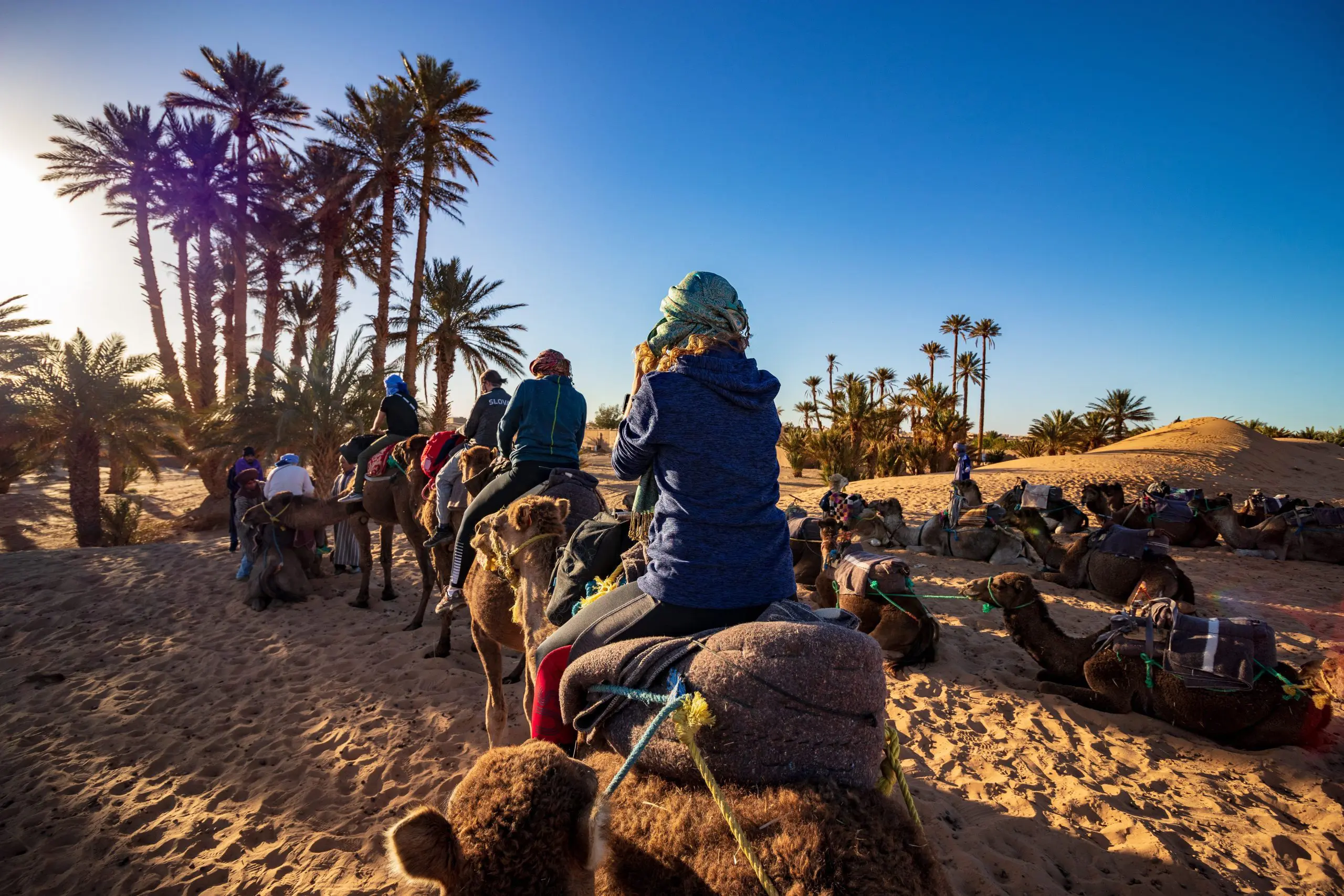 December Sale; Save 50%
December Sale; Save 50%  Croatia Sailing : Save 50%
Croatia Sailing : Save 50% Asia Tours : 50% Off
Asia Tours : 50% Off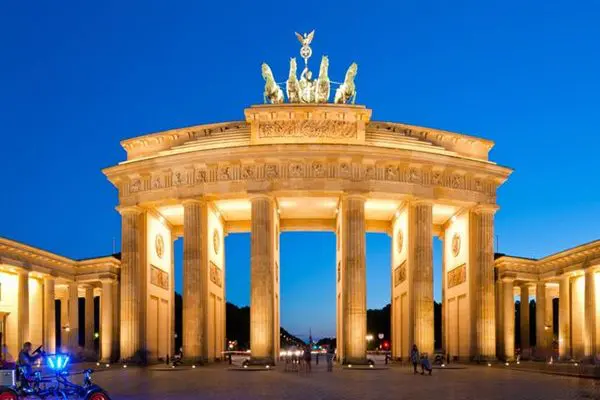 Central & Eastern Europe Tours: 50% Off
Central & Eastern Europe Tours: 50% Off 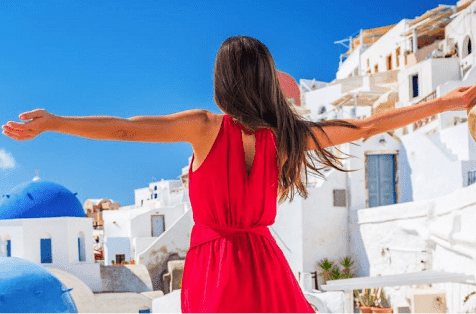 Why Travel Talk
Why Travel Talk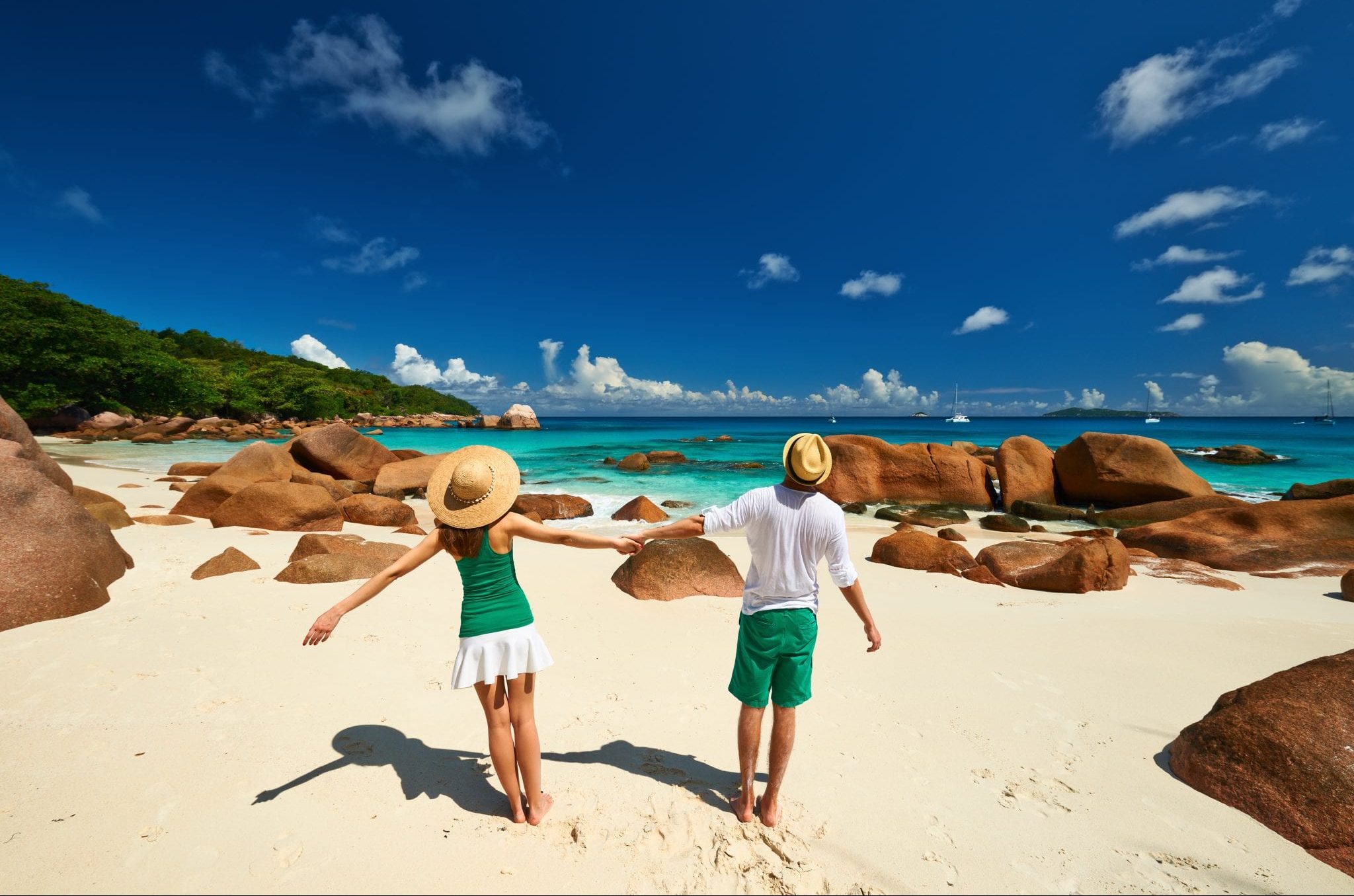 Travel Talk Blog
Travel Talk Blog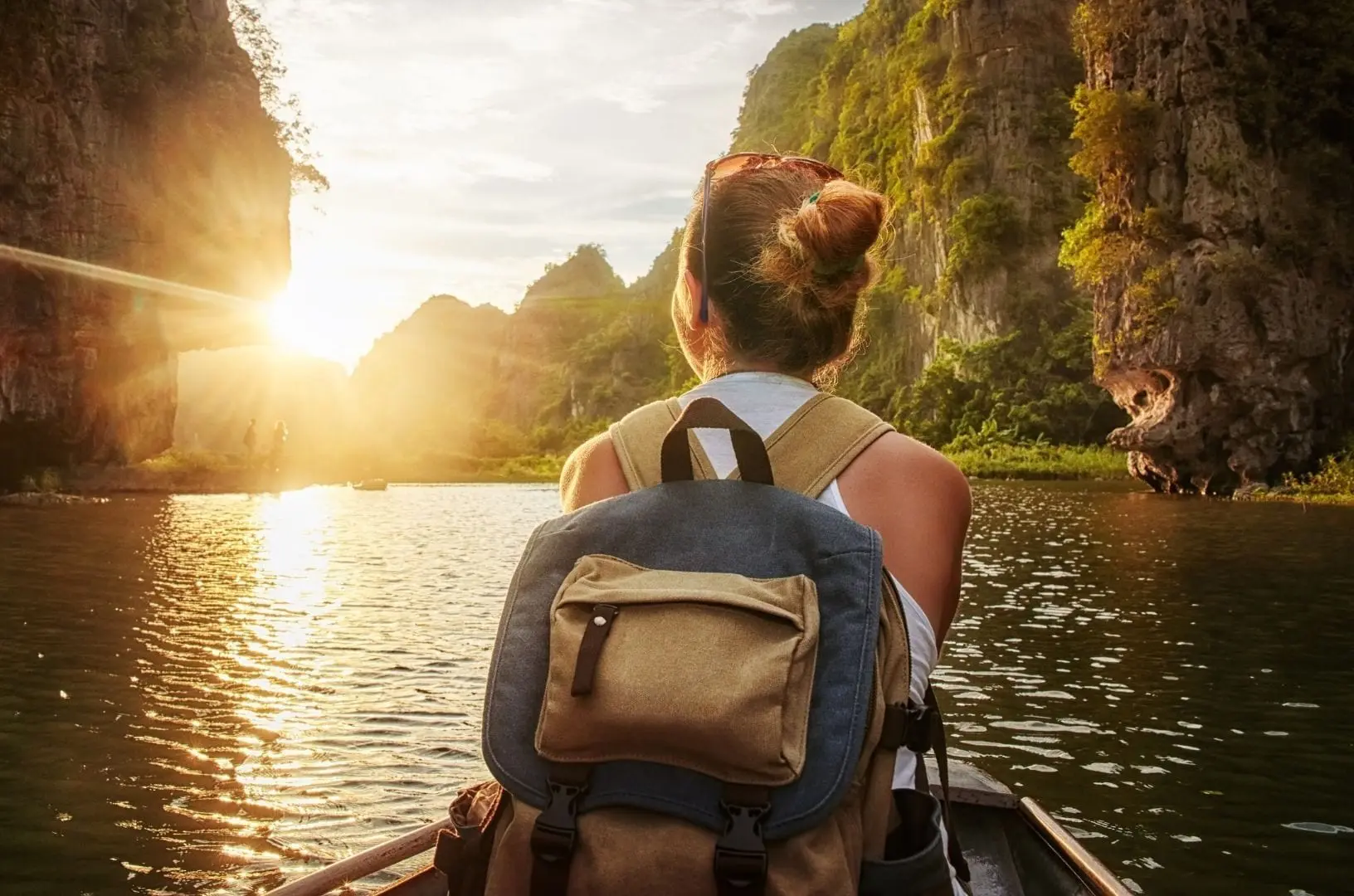 Responsible Travel
Responsible Travel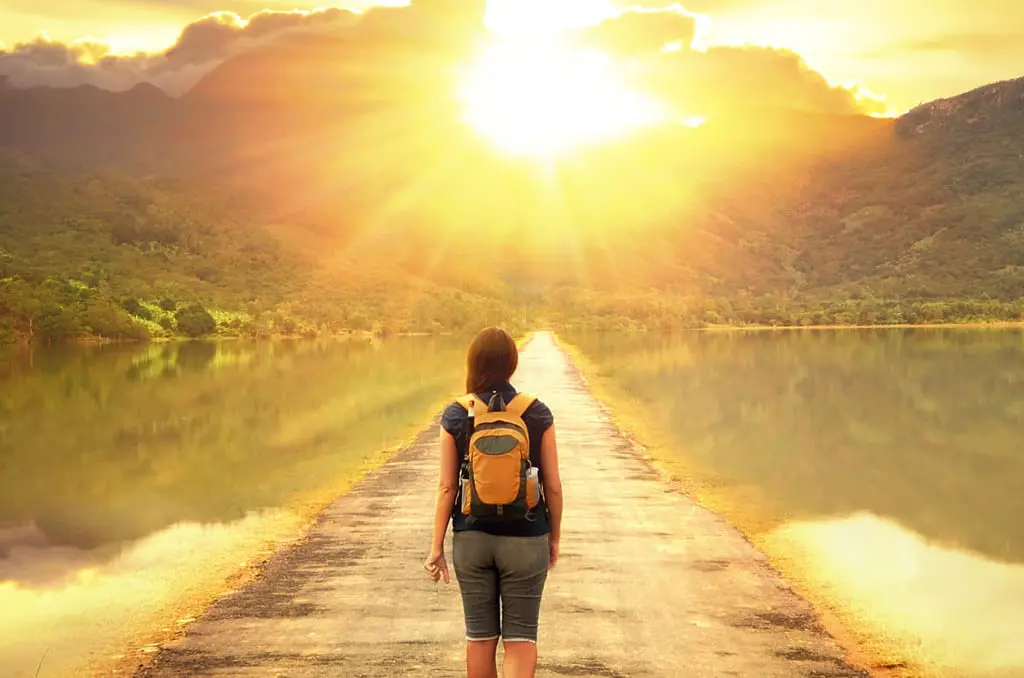 Fair Travels with Travel Talk
Fair Travels with Travel Talk